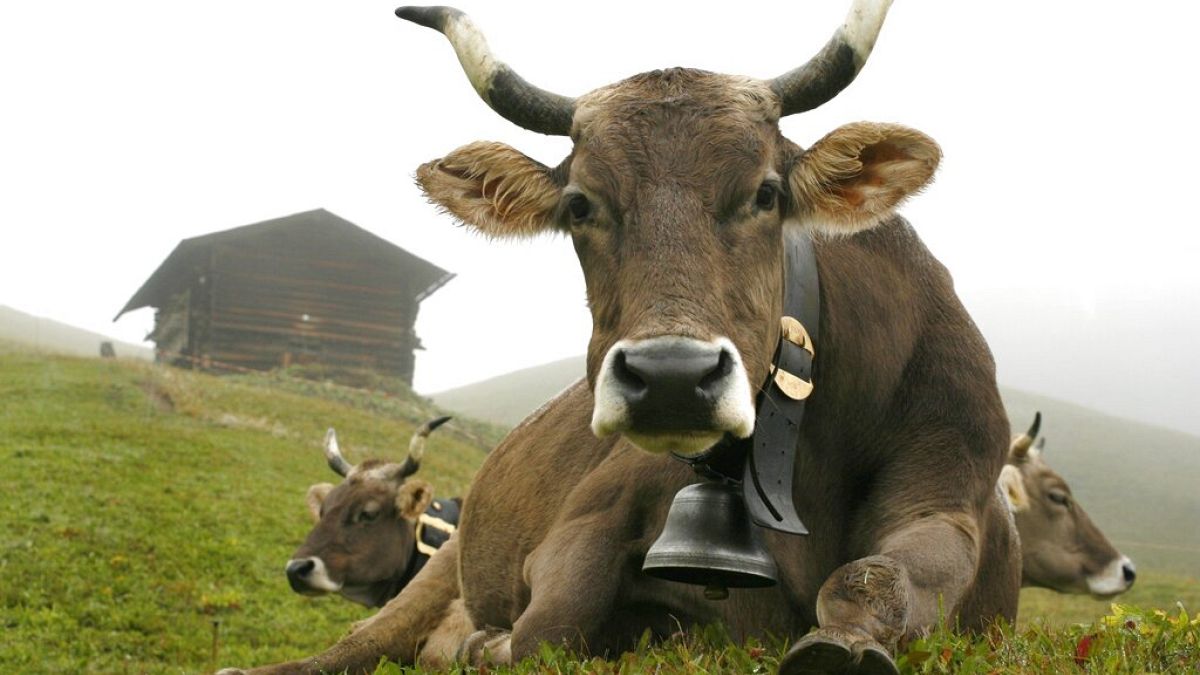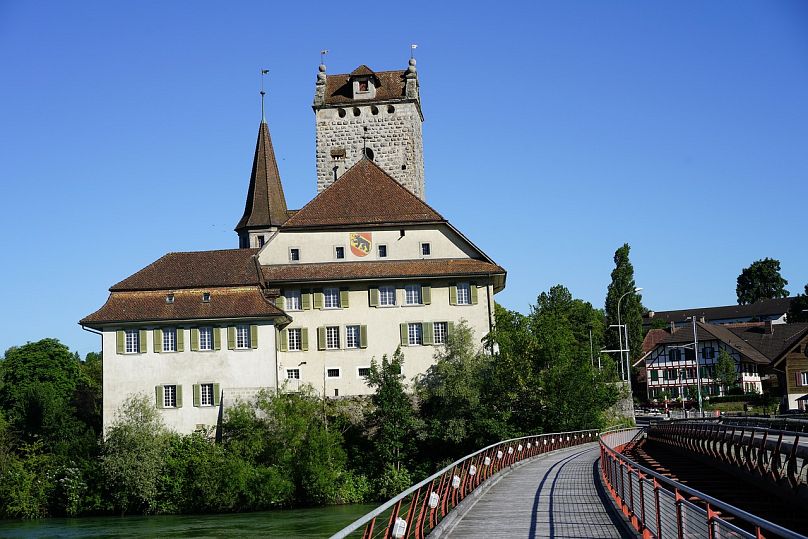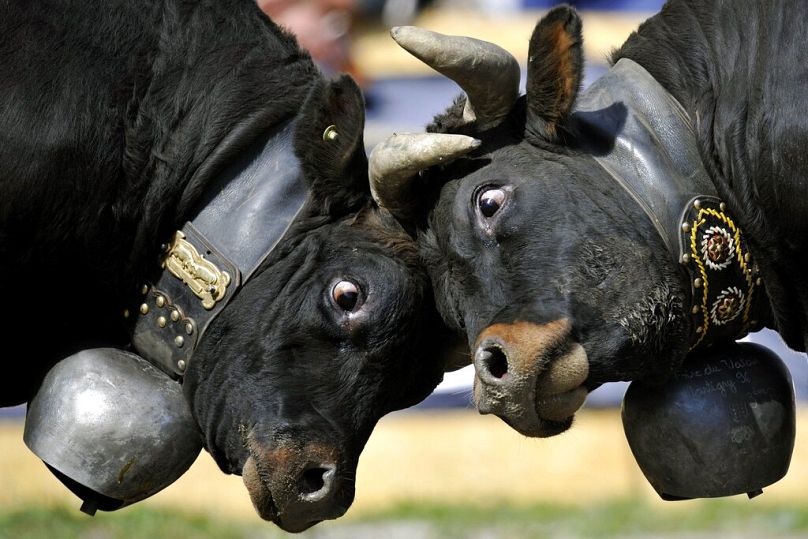Two couples who recently moved to the Swiss village of Aarwangen want to ban the clanging of cowbells.
Raclette, rustic chalets, snow-capped mountains and tinkling cowbells: all traditional symbols of the Swiss idyll.
Until the sound of the tinkling cowbells gets a bit too much in the middle of the night when you're trying to sleep.
The din proved unbearable for two newly-arrived couples in Aarwangen, who complained to the village council, asking for the bells to be removed at night.
In response to their complaints, a group of residents launched a campaign in favour of the clanging. Their pro-cowbell movement not only aims at preserving the sound of cowbells but also the church bells.
Colliding visions
Aarwangen has almost 5,000 residents and new accommodation has been springing up in the village over the last few years.
Located on the banks of the river Aare, with views across to the Bernese Alps, with its medieval castle and traditional farmhouses, Aarwangen has attracted city dwellers from Bern, Zurich, and Basel which are just an hour away.
But Aarwangen's new residents were not prepared for the fact that this traditional village is also still fully functioning; with dairy farms and bell-clad cows.
For municipality president Niklaus Lundsgaard-Hansen the conflict is "an example of the urban-rural divide".
Many people have moved to the area, “most of them not necessarily from cities, but from urban outskirts, and are less familiar with the agricultural way of life”, he told Swiss public broadcaster SRF.
Why Cowbells?
Once upon a time, the bells were a way of scaring away predators and keeping track of cows grazing high up on Alpine slopes. But now cows have electric chips and mostly graze in fenced-off pastures.
While some Swiss farmers opt to remove cowbells at night, others see this as an attack on tradition.
Swiss communities have been facing the dilemma over the sound of bells for some time, but with no common rules on the issue, each case has to be handled separately.
In 2017, a Dutch woman was denied a Swiss passport after "annoying local people" with her campaigns for animal rights. Nancy Holten argued that the bells harmed the cows because of their weight.
As early as 1975 the Federal Court ruled against cowbells in a residential area and forbade a farmer to put them on his cattle at night.
The issue has become such a hot topic that it has been made into a special exhibition at the Langenthal museum
“Debates like in Aarwangen are not about noise, volume or decibel levels – they’re about tolerance,” museum director Jana Fehrensen told the Swiss Broadcasting Corporation.
As for Aarwangen, there will be a public meeting to vote on the future of their bells next month. It is hoped by then that authorities in Bern will have reached some guidelines on how peace can co-exist under noise pollution regulations.
And for the two newly arrived couples, one has since withdrawn the complaint, while the other is planning to move away, Lundsgaard-Hansen said.


